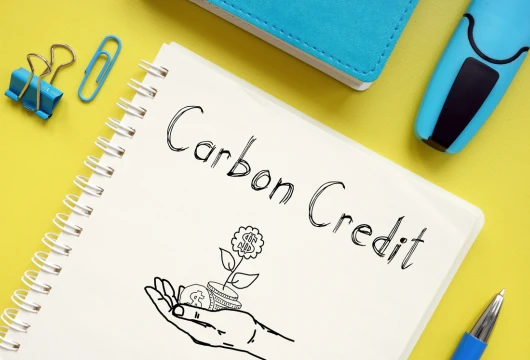Joint Crediting Mechanism Strengthens India-Japan Carbon Credits Cooperation
India and Japan are set to formalize a strategic partnership in carbon trading through a Joint Crediting Mechanism (JCM). This initiative, which involves the allocation of carbon credits, is designed to enhance bilateral cooperation in emission reduction efforts. According to a Cabinet note reviewed by the business line, the Memorandum of Cooperation (MoC) will structure the process for allocating carbon credits and establish a registry to track these credits.
Structured Process and Registry for Carbon Credits
Under the proposed JCM, projects will only be approved after clearance by a Joint Committee composed of representatives from both countries. Upon approval, credits issued based on submitted reports will be allocated to the respective registries of India and Japan. These credits can then be utilized towards fulfilling the Nationally Determined Contributions (NDCs) of both nations, which are part of their climate action plans to cut emissions and adapt to climate impacts.
Boost to Job Creation and Clean Technologies
The Cabinet note highlights that the JCM is expected to significantly boost job creation by attracting investments in low-carbon and clean technologies. This development aligns with India’s broader strategy to enhance its green economy and foster sustainable development.
Facilitating Decarbonizing Technologies
The JCM will facilitate the diffusion of leading decarbonizing technologies, equipment, machinery, products, systems, and infrastructure. This will support the implementation of mitigation actions and promote the adoption of clean technology across various sectors. The initiative is grounded in Article 6.2 of the Paris Agreement, which encourages cooperative approaches to achieve climate goals.
Joint Committee to Oversee Implementation
The establishment of a joint committee to oversee the JCM’s implementation is a testament to the commitment of both governments to a transparent and fair process.
Avoiding Double Counting of Credits
One of the critical provisions of the MoC is the mutual recognition that part of the JCM credits issued from emission reductions and removals will contribute to Japan’s NDC. In contrast, the rest will contribute to India’s NDC. This ensures that double counting of credits, a situation where the same emission reduction is counted towards the targets of both countries, is avoided, maintaining the integrity and transparency of the mechanism. Both governments can also authorize part of the JCM credits for international mitigation purposes, further enhancing the global impact of the initiative.
Technology Transfer and Capacity Building
The draft MoC mentions that Japan will facilitate the transfer of technology, finance, and capacity building related to new technologies under the joint crediting mechanism. This aspect is crucial for ensuring both countries can implement and benefit from the JCM. The cooperation aims to leverage Japan’s advanced technology and India’s growing market for clean technologies to achieve significant emission reductions.
Strengthening Bilateral Environmental Cooperation
Establishing the JCM is a significant step towards strengthening environmental cooperation between India and Japan. By working together, both countries aim to address climate change more effectively and accelerate the transition to a low-carbon economy. This partnership is expected to set a precedent for other nations to follow, promoting global collaboration in achieving climate goals.
The India-Japan Joint Crediting Mechanism represents a forward-thinking approach to tackling climate change through bilateral cooperation. By leveraging each other’s strengths and committing to a structured, transparent process for Carbon Credits allocation, both countries can make substantial progress towards their emission reduction targets. This initiative contributes to global climate goals and promotes sustainable development and job creation in the green technology sector.
For more in-depth analysis and inspiring climate news click here

